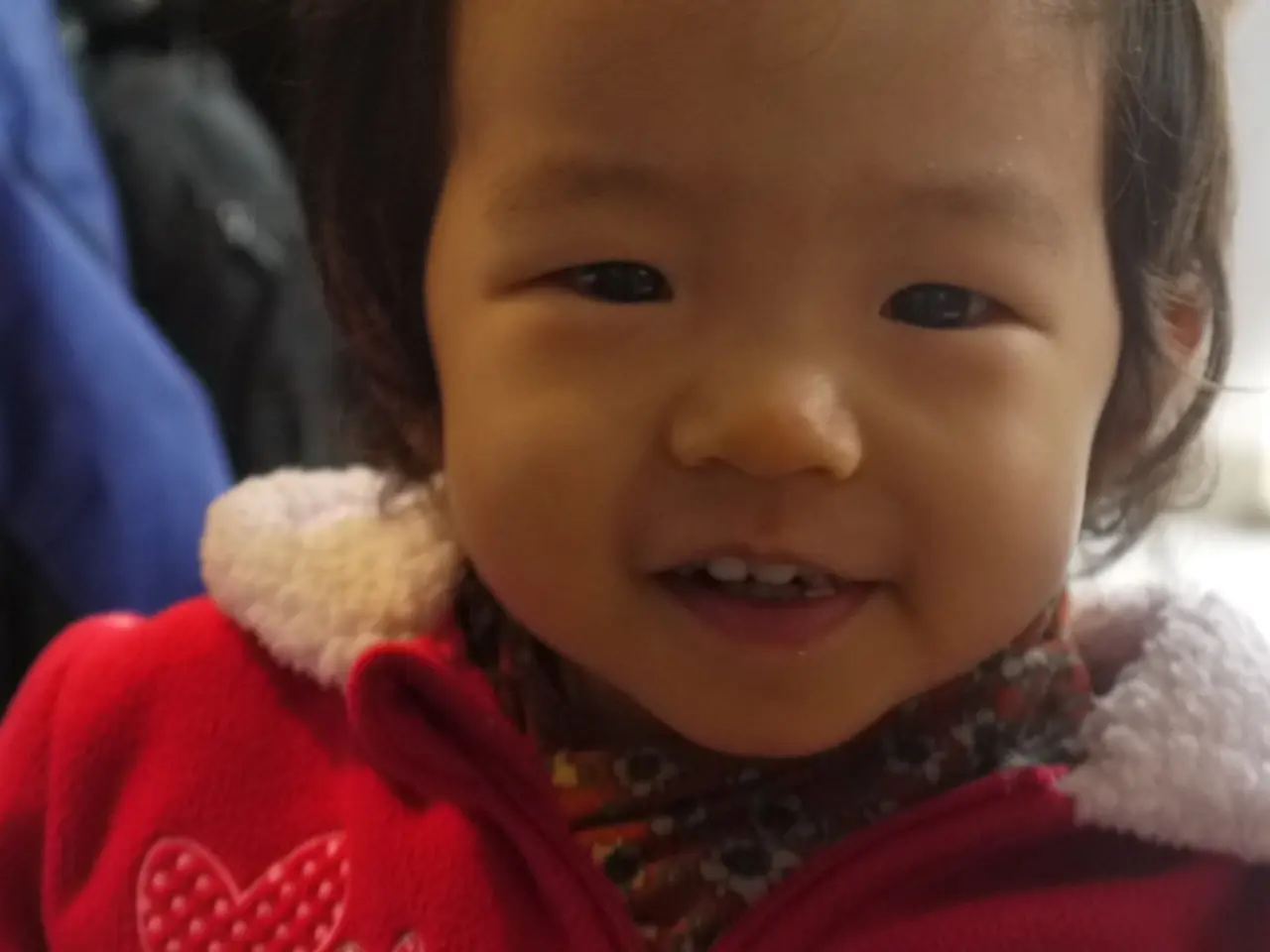Developmental Milestones for a 7-9 Month Old Baby in Nigeria: Insights and Expectations
Nigerian Babies Achieve Significant Developmental Milestones at 7-9 Months
At the 7-9 month mark, Nigerian babies undergo a period of significant development, mirroring trends observed globally while incorporating unique cultural influences.
Physical changes and motor skills development
During this phase, babies typically develop the ability to sit without support, start crawling, and explore their environment actively. They gain control over their hands, enabling them to grasp toys and show enhanced coordination and strength[1]. Physically, babies continue rapid growth in weight and height while refining sensory perception, including hearing, vision, and touch[4].
Cognitive development
Infants exhibit curiosity and object permanence development, signalling their exploration of everything around them. They show improved attention and begin understanding simple cause-effect relationships by interacting with their surroundings[1][4].
Communication and language
Babies often babble and produce repetitive sounds (e.g., "ba," "da") which lay the foundation for language acquisition. Eye contact and responding to sounds become more frequent as communication skills emerge[1][4].
Feeding and nutrition
By 7 months, many infants start complementary feeding alongside breastmilk or formula. Foods are often introduced gradually, with baby-led weaning gaining popularity for encouraging self-feeding and texture exploration. Feeding schedules balance milk feeds and solids to meet growing energy needs[5].
Emotional and social development
Babies develop attachment behaviors, recognize familiar persons, and show preferences for caregivers. Social smiles, laughter, and stranger anxiety may appear as part of normal emotional growth[1][3].
Role of cultural nuances in Nigeria
Child-rearing in Nigeria typically blends traditional and modern practices. Extended family involvement is significant, providing social support and fostering early social skills. Nutritional practices may vary regionally, often including indigenous complementary foods. Cultural beliefs influence responses to infant sleep patterns and feeding, with some communities emphasizing co-sleeping, while others encourage early independence. Caregivers often engage in frequent physical contact and vocal interaction, integral to emotional bonding and language development.
Supporting development through play and toys
Engaging toys and games play a crucial role in enhancing cognitive development. Simple toys like stacking rings or blocks aid in improving hand-eye coordination and problem-solving skills. Toys that encourage exploration, such as activity tables with buttons and levers, offer interactive learning experiences. Musical instruments like drums or shakers help babies explore sounds and rhythms, fostering auditory development[2].
Promoting emotional well-being
It is important to provide a secure and supportive environment to promote the emotional well-being of babies during the 7-9 months age range. Caregivers should create a consistent routine, respond promptly to needs, and offer physical comfort[3].
Cultural toys for cognitive development
Parents can introduce traditional toys like wooden puzzles or local handcrafted toys to encourage cultural familiarity while promoting cognitive development[6].
Recognizing familiar faces and objects
By 7-9 months, babies begin to recognize familiar faces and objects, showing excitement and happiness upon seeing loved ones[1].
Rolling and crawling
Rolling is a notable milestone during this period, with babies often transitioning from back to tummy and vice versa. Many infants start showing signs of attempting to crawl, such as rocking back and forth or pushing up on their hands and knees[1].
Fostering language development
Reading books aloud, singing songs, and responding to babbling are examples of ways to encourage language development in babies during this stage[1]. Soft books with vibrant colors and textures can captivate a baby's attention and foster early literacy skills.
Overall, Nigerian babies aged 7-9 months experience key developmental milestones common worldwide, shaped uniquely by their cultural environment that supports physical growth, cognitive exploration, communication emergence, nutritional transition, and socio-emotional bonding[1][3][5].
- At 7-9 months, Nigerian babies exhibit significant developmental milestones in their physical changes, cognitive development, communication and language, feeding and nutrition, emotional and social development, and more, incorporating unique cultural influences.
- Physically, 7-9 month old babies develop control over their hands and refine sensory perception, such as hearing, vision, and touch.
- Babies may start crawling and exploring their environment more actively during the 7-9 month period.
- Cognitively, they show curiosity and object permanence development, which is a sign of exploring everything around them.
- Babies often babble and produce repetitive sounds, such as "ba," "da," which lay the foundation for language acquisition.
- By 7 months, many infants start complementary feeding alongside breastmilk or formula, often with baby-led weaning gaining popularity.
- Emotionally, babies develop attachment behaviors and show preferences for certain caregivers, while social smiles, laughter, and stranger anxiety may appear during this period.
- In Nigeria, child-rearing practice often involves both traditional and modern approaches, with extended family involvement providing social support and fostering early social skills.
- To support cognitive development, engaging toys and games like stacking rings, blocks, activity tables, and musical instruments are crucial.
- To promote emotional well-being, creating a secure and supportive environment, maintaining a consistent routine, responding promptly to needs, and providing physical comfort are essential for Nigerian babies aged 7-9 months.




